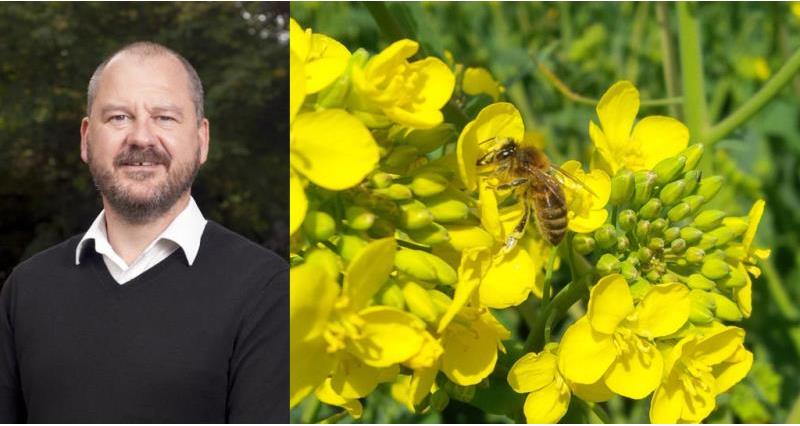The European Commission has put forward proposals that would effectively ban all uses of three neonicotinoids – clothianidin, imidacloprid and thiamethoxam – on all outdoor crops.
Speaking at Cereals 2017, Dr Chris Hartfield, NFU Acting Chief Science and Regulatory Affairs Adviser, said such a ban would affect around one million hectares of arable crops, including cereals and sugar beet, where there are no effective alternatives to neonicotinoid seed treatments. It would also affect a significant area of vegetable crops.
Dr Hartfield said: “We have a small window of opportunity following the General Election before serious discussions happen on this subject in Brussels.
“We need to use this time to reinforce the fact that there is still no clear evidence that neonicotinoids are causing widespread declines in bee populations and that a blanket ban, as well as being unjustified scientifically, would also have a significant impact on sustainable productive agriculture in the UK.
“It’s important MPs, as well as MEPs, know what impact a ban would have so they can make Defra aware of the need for the UK to vote against this proposal. We need farmers to write to MPs and MEPs, visit surgeries to speak to them, and invite them out on farm to show them why these products are so important.
“There is no evidence that neonicotinoid bans to date have measurably improved pollinator health. Experts at the world-leading agricultural research station at Rothamsted have recently questioned the evidence behind neonicotinoid bans and re-iterated that it still does not provide a clear steer for policy-makers.
“It is vital we use science and good evidence to ensure we find appropriate and balanced ways to tackle problems facing bees and other pollinators that will really benefit their populations. Otherwise we risk making changes based on popular opinion that don’t actually help bees, but do have costs for the supply chain and unintended consequences for the environment,” Dr Hartfield said.
